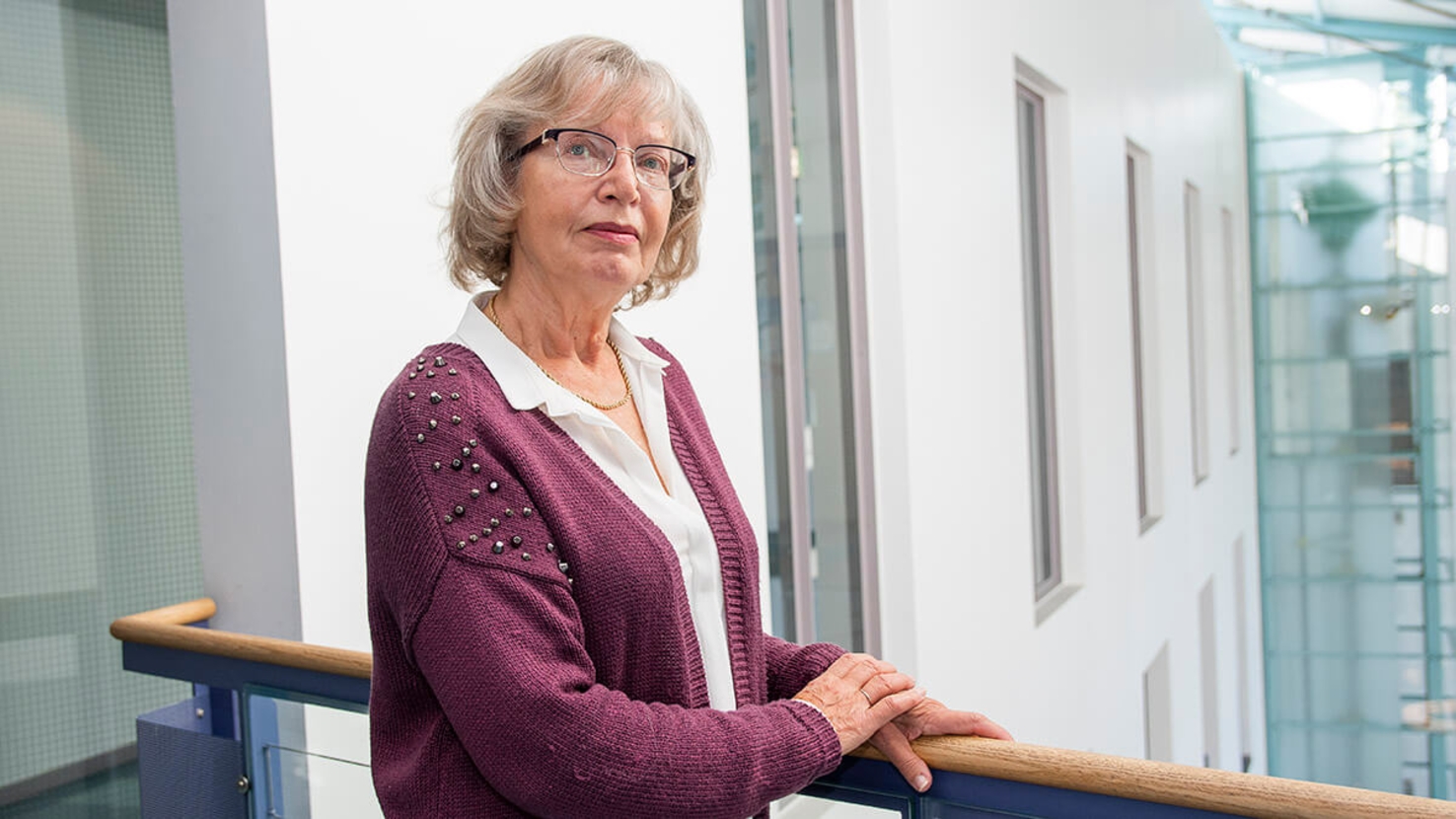Katariina Raij: “The development of the LbD pedagogy must not be overlooked at Laurea.”
A new publication that came out in January deals with the further development of the Learning by Developing action model.

News 28.1.2019
Laurea’s publication series expanded in January with a new publication titled “Learning by Developing 2.0 - New Faces of Learning by Developing (LbD) action model”, which focuses on the development of Laurea’s action model. One of the authors, Katariina Raij, has been a key figure in the research and development work leading to the LbD model since the early 2000s.
After retiring from Laurea, Raij has continued to follow the field of higher education from a broader perspective—for example, by participating in the Finnish Education Evaluation Centre’s audits of the quality systems of higher education institutions as both a member and the chairperson of audit teams.
Katariina Raij’s article included in the new publication summarises the key principles of the LbD model, based on previous publications:
"These key principles can also be found in other sources. However, we wanted to make the bases of LbD easily accessible to people who have not previously acquainted themselves with the theoretical foundation of LbD and who see LbD merely as a model of project learning. LbD is much more than that", Raij explains.
Based on different types of knowledge
The roots of LbD, Laurea’s pedagogic action model, can be traced back to 2000. The model was developed, in part, on the basis of the observations that Katariina Raij made in her doctoral dissertation: 1) the concept of competence as integrating knowledge, understanding, skills and situational control (known as the comprehensive model of professional competence in behavioural science research); and 2) the types of knowledge constructing competence—knowledge in theories and models, moral knowledge (cf. knowledge of values), knowledge in skills and abilities and experiential knowledge.
The results led to the conclusion that the competence that universities of applied sciences should aim at is more than the creation of new knowledge and the construction of cognitive structures but is more strongly related to action and collaboration.
"A good learning environment should encompass all types of knowledge. Based on her dissertation work, Raij emphasises the primacy of knowledge in theories and models, since it is impossible to study new phenomena related to learning without recourse to concepts."
"This is followed by skills and abilities, which are developed collaboratively, in search of ethical solutions. Experiences and the significance awarded to them finally integrate the different types of knowledge into competence."
Development projects have advanced the action model
The research-based LbD action model has benefited from material produced in various development projects. The model has been evaluated both nationally and internationally. Supported by the results, Laurea first made a strategic choice to adopt the LbD action model and later made LbD its trademark.
"Laurea has been a pioneering researcher and developer of pedagogy in universities of applied sciences. Models created elsewhere under different names were based on project learning but did not incorporate deeper research,” says Raij. "That is why it is so important not to overlook the significance of the theoretical basis of LbD or its foundation based on the philosophy of science simply for lack of acquainting oneself with these."
According to Raij, choosing the action model as the common strategy of the university of applied sciences was a challenge in itself but, as a result, Laurea developed into a centre of excellence in terms of regional development and education. What was also significant was that LbD opened doors to many international projects.
Need for further research
To her satisfaction, Katariina Raij has noted that the new curriculum adopted in Finnish basic education has also moved towards LbD. The LbD model was piloted in entrepreneurial education offered in comprehensive schools in the transnational YEDAC project (involving six EU Member States), which ran from 2013 to 2015, and project learning has now been adopted more broadly as an action model.
The LbD model is based on pedagogic research and, in the future, Raij hopes to see more research developing the model:
"Since pedagogic research in LbD rests on educational sciences, the higher education institution will always need expertise and professionals in educational sciences."
"As shown by several projects, LbD has been developed and must continue to be developed from different perspectives. LbD, which helps enhance pedagogy in universities of applied sciences, must be developed on the basis of solid research results, with a foundation in educational sciences and the philosophy of science."